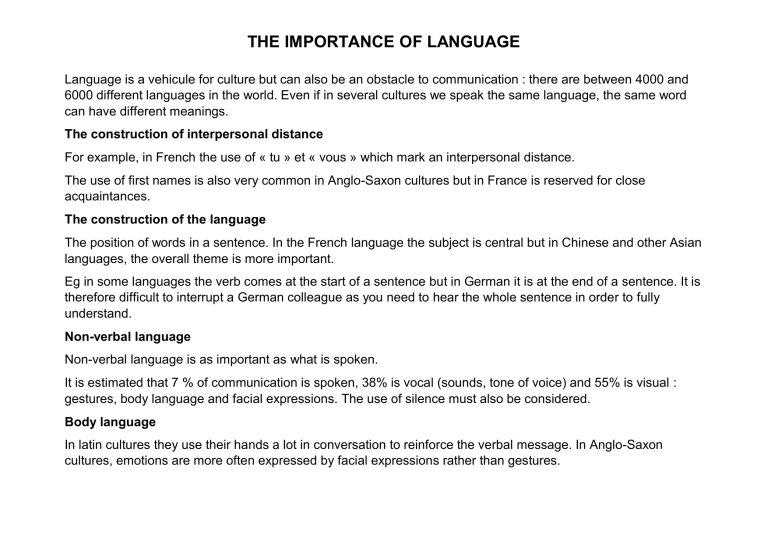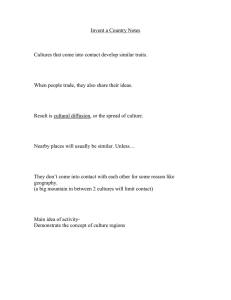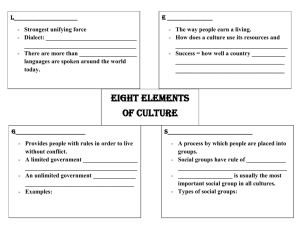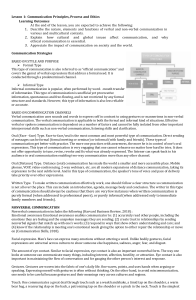
THE IMPORTANCE OF LANGUAGE Language is a vehicule for culture but can also be an obstacle to communication : there are between 4000 and 6000 different languages in the world. Even if in several cultures we speak the same language, the same word can have different meanings. The construction of interpersonal distance For example, in French the use of « tu » et « vous » which mark an interpersonal distance. The use of first names is also very common in Anglo-Saxon cultures but in France is reserved for close acquaintances. The construction of the language The position of words in a sentence. In the French language the subject is central but in Chinese and other Asian languages, the overall theme is more important. Eg in some languages the verb comes at the start of a sentence but in German it is at the end of a sentence. It is therefore difficult to interrupt a German colleague as you need to hear the whole sentence in order to fully understand. Non-verbal language Non-verbal language is as important as what is spoken. It is estimated that 7 % of communication is spoken, 38% is vocal (sounds, tone of voice) and 55% is visual : gestures, body language and facial expressions. The use of silence must also be considered. Body language In latin cultures they use their hands a lot in conversation to reinforce the verbal message. In Anglo-Saxon cultures, emotions are more often expressed by facial expressions rather than gestures.










